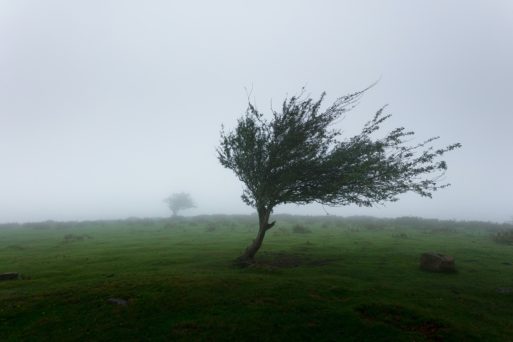
 Walt Whitman’s poetry has been immortalized by his beautiful, visceral tributes to nature that leave us rethinking our ideas of the world around us. Whitman begins triumphantly in “Whispers of Heavenly Death” as though he wants his readers to picture the golden gates of heaven opening to the sound of chorusing angels. “Whispers of heavenly death murmur’d I hear,” it begins, “Labial gossip of night, sibilant chorals, / Footsteps gently ascending, mystical breezes wafted soft and low.” These lines are soothing in their depiction of “mystical breezes” and “sibilant chorals.” The vocabulary is celebratory for such a typically sad event, and it seems as though the speaker wants to announce the contrast between the tone and the sad subject matter immediately. The opening lines take a strong approach as if to say that death is not such a scary thing—in fact, it can be heavenly. Between the humming background noise of the night and the calming breezes, any preconceived notions about death coming in the form of grim reapers with scythes are instantly banished.
Walt Whitman’s poetry has been immortalized by his beautiful, visceral tributes to nature that leave us rethinking our ideas of the world around us. Whitman begins triumphantly in “Whispers of Heavenly Death” as though he wants his readers to picture the golden gates of heaven opening to the sound of chorusing angels. “Whispers of heavenly death murmur’d I hear,” it begins, “Labial gossip of night, sibilant chorals, / Footsteps gently ascending, mystical breezes wafted soft and low.” These lines are soothing in their depiction of “mystical breezes” and “sibilant chorals.” The vocabulary is celebratory for such a typically sad event, and it seems as though the speaker wants to announce the contrast between the tone and the sad subject matter immediately. The opening lines take a strong approach as if to say that death is not such a scary thing—in fact, it can be heavenly. Between the humming background noise of the night and the calming breezes, any preconceived notions about death coming in the form of grim reapers with scythes are instantly banished.
“WHISPERS of heavenly death, murmur’d I hear;
Labial gossip of night—sibilant chorals;
Footsteps gently ascending—mystical breezes, wafted soft and low;
Ripples of unseen rivers—tides of a current, flowing, forever flowing…”
Credit: smashingtips.comWhile the middle lines seem more somber and reflective, the final two stanzas of Whitman’s poem solidify his connection between the human end-of-life experience and nature. Taking the perspective of the grieving person, he writes, “I see, just see skyward, great cloud-masses, / Mournfully slowly they roll, silently swelling and mixing, / With at times a half-dimm’d sadden’d far-off star, / Appearing and disappearing.” In these lines, it seems as though the speaker is trying to convey his struggle with accepting death while at the same time feeling awe for what lies beyond human perception. This idea is further cemented by the last stanza: “(Some parturition rather, some solemn immortal birth; / On the frontiers to eyes impenetrable, / Some soul is passing over.)” The parenthetical nature of these last lines suggests that the speaker is uncertain and yet hopeful. Rather than stating his thoughts directly, the parentheses act as a way of keeping these thoughts closer to the heart. The dim, sad star feels like the more accepted ending of the death story—a loved one dies and we are left with only memories, sad reminders that they are no longer around. The parenthetical statement, though, suggests that the speaker really believes in a more cyclical end, an end that could potentially involve reincarnation or some kind of rebirth.
“(Some parturition, rather—some solemn, immortal birth:
On the frontiers, to eyes impenetrable,
Some Soul is passing over.)”
The proof is in the vocabulary; “parturition,” “immortal,” and “birth” all point to death being another beginning to yet another cycle in the life and death process. The speaker cannot know this, however, hence the frontiers he cannot see with his human eyes. Immortal souls may be “passing over” in the largely unknowable realm of the universe, but he keeps these thoughts to himself because they are hard to defend. Ultimately we are left to wonder: can we only explore these ideas in poetry and fiction or can we converse openly about a peaceful existence after death?

 “Whispers of Heavenly Death” by Walt Whitman
“Whispers of Heavenly Death” by Walt Whitman



 Funeral Favors Offer Visitors a Tangible Memento
Funeral Favors Offer Visitors a Tangible Memento
 “Comeback” by Prince
“Comeback” by Prince















